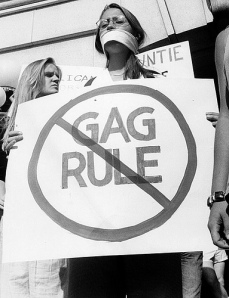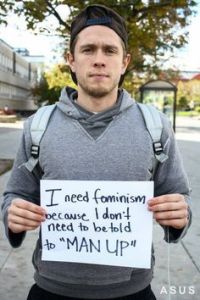 According to the Worldwide Health Organization (WHO), there are 42 million abortions each year and around half of these are deemed unsafe. The 2014 The Guttmacher Policy Review places the number of abortions to be close to 38 million with approximately 56% being deemed unsafe. Incredibly, the Guttmacher Institute further asserts that in Africa and Latin America virtually all abortions – 97% and 95%, respectively, are unsafe. Areas that also have very strict laws concerning this controversial topic. The WHO defines an “unsafe” abortion as one performed by an individual without the necessary skills, or as an abortion performed in an environment that does not conform to minimum medical standards, but many times both are applicable. A disturbing truth is that millions upon million of women, particularly young, poor, and rural women – are inserting sharp objects or herbs and plants into their wombs, ingesting chemicals, or taking medicines or traditional remedies to induce miscarriages.
According to the Worldwide Health Organization (WHO), there are 42 million abortions each year and around half of these are deemed unsafe. The 2014 The Guttmacher Policy Review places the number of abortions to be close to 38 million with approximately 56% being deemed unsafe. Incredibly, the Guttmacher Institute further asserts that in Africa and Latin America virtually all abortions – 97% and 95%, respectively, are unsafe. Areas that also have very strict laws concerning this controversial topic. The WHO defines an “unsafe” abortion as one performed by an individual without the necessary skills, or as an abortion performed in an environment that does not conform to minimum medical standards, but many times both are applicable. A disturbing truth is that millions upon million of women, particularly young, poor, and rural women – are inserting sharp objects or herbs and plants into their wombs, ingesting chemicals, or taking medicines or traditional remedies to induce miscarriages.
In 2000 the U.S. was one of 189 countries that made a commitment to assist the U.N. Millennium Development Goals (MDG) whose aim is to “reduce poverty and improve the lives of poor people”. One of the eight pillars of the program is to reduce maternal mortality. Abortion remains a major cause of death among women in poor developing countries. Induced miscarriages account for about 13% of pregnancy related deaths worldwide with millions facing injuries that stem from unsafe abortions, including hemorrhage, infection, chronic pain, secondary infertility and trauma to multiple organs. 
Yet, U.S. foreign policy wavers in its commitment with each new president elect. Contradicting our commitment to the Millennium Development Goals and the reduction of maternal mortality, the United States was steadfast in its “Global Gag Rule” otherwise known as the Mexico City Policy. First, instituted in 1985 during the Reagan administration, then repealed in 1993 by President Clinton, only to be reinstituted by President George W. Bush on his first day in office in 2001, and repealed yet again in 2009 under the Obama administration, the Mexico City Policy “stipulates that nongovernmental organizations receiving U.S. assistance cannot use separately obtained funds to inform the public or educate their government on the need to make safe abortion available, provide legal abortion services, or provide advice on where to get an abortion” – hence the nickname “Global Gag Rule”.
The fact of the matter is that the “Global Gag Rule” isn’t about funding abortions; the Helms Amendment of 1973 already prevents American tax dollars from funding overseas abortions. Instead, this American law prevents critical U.S. funding from being used for basic family planning information and contraception advice. If countries do not adhere to the policy, USAID funding, technical assistance, and donated goods – including contraceptives like condoms are lost. The “Global Gag Rule” effectively keeps 215 million women in poor developing countries from obtaining wanted prevention services and contributes to the vicious cycle of poverty in their lives.
In a speech at the NARAL Anniversary Luncheon in Washington, D.C. on January 22, 1999 Hillary Clinton said, “I have met thousands and thousands of pro-choice men and women. I have never met anyone who is pro-abortion. Being pro-choice is not being pro-abortion. Being pro-choice is trusting the individual to make the right decision for herself and her family, and not entrusting that decision to anyone wearing the authority of government in any regard.” By instituting the Mexico City Policy or “Global Gag Rule” we are overstepping our boundaries as a government and as a country. This is why we cannot allow the policy to be reinstituted with another shifting of political powers.
Good family planning and safe abortions are a necessary part of reducing maternal mortality – something we as a nation have pledged our commitment to through our support of the Millennium Development Goals. By instituting a framework of family planning that includes education about contraceptives and abortion this is definitely an achievable outcome. Like Hillary and Bill Clinton, I believe that abortions should be safe, legal, and rare. Reproductive rights are devoid of worth where governments, organizations, and individuals fall short of comprehending or recognizing those rights. Their own people, not just international bodies, must hold governments accountable to the commitments they make in international agreements. Safe abortions are instrumental to a woman’s right to life and right to enjoy good health. By making abortion legal and safe, millions of maternal deaths each year would be prevented! This is huge. There is an epidemic. Creating economically and socially feasible avenues to safe abortion reduces unsafe abortion rates and maternal mortality. In order to prevent future unwanted pregnancies the incorporation of safe abortions needs to be involved in the discussion of family planning methods. Combining unfettered access to US aid for family planning to the Millennium Development Goals established by the U.N to reduce poverty will strengthen the U.S. role in developing countries. Failure to do that and returning to the whipsaw action of changing policy with each new president threatens not only the U.S. perceived place as a world leader but millions of lives.
Secretary Hillary Clinton Defending Reproductive Rights and Family Planning:
What is your opinion? – Jozi Patricia


